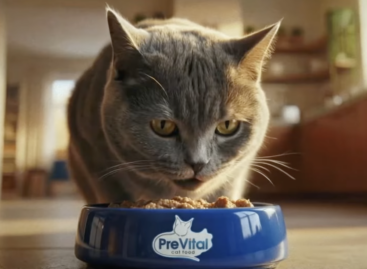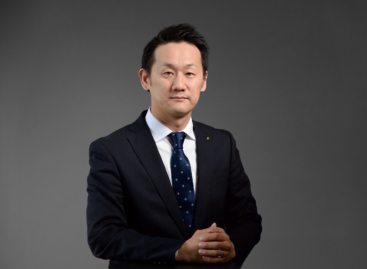Sustainability is coded in Nestlé’s genes
Michael Nixon, managing director of Nestlé Hungária Kft. talked to our magazine about the new-generation steps taken in the field of sustainability, in the light of successful practices from Hungary.
Henri Nestlé established the business in 1867 and today Nestlé is the world’s biggest food company, which fact perfectly indicates that long-term thinking and being dedicated to sustainability pays off. The Nestlé Group employs 333,000 people worldwide, operates 447 production facilities and is present in stores with 2,000 global and local brands in 196 countries. Nestlé has the biggest R&D network among food companies – at 34 places more than 5,000 people do research and development work. Nestlé entered the Hungarian market in 1991 and since then invested HUF 70 billion. The company employs 2,000 people at 5 premises and works together with more than 1,700 Hungarian suppliers. More than 80 percent of production – for instance pet food from Bük, Nesquik and Nescafé products from Szerencs and chocolate figures from Diósgyőr – is exported to 40 countries. Michael Nixon told us that the Bük production facility is one of the most advanced pet food factories in Europe, where several methods have been developed by Hungarian experts so Nestlé workers from abroad very often come to visit and exchange experiences. The plant in Diósgyőr is the only Nestlé factory in the world where hollow chocolate figures are manufactured and exported to 30 countries. Global presence and 1 billion products sold daily mean great responsibility. Ever since the beginnings of Nestlé 150 years ago being responsible for society, the economy and the environment has been coded in Nestlé’s genes. Nestlé is a global group but it never forgets about the fact that it is made up of local companies serving local customers. Global presence means that the company is in the limelight, but at the same time it also directly senses problems in various fields, be it the lack of water, climate change, war, poverty or famine. In its Creating Shared Value programme Nestlé is taking steps to solve such problems. Sustainability is key in this strategy: between 2002 and 2012 Nestlé realised a 53-percent global growth in terms of volume but at the same time reduced its water and energy use and waste production. In accordance with its Creating Shared Value philosophy, Nestlé lays great emphasis on providing consumers with healthy and nourishing food products, improving their quality of life in general. In Nestlé’s programmes not only manufacturing tasty and good-quality products is important in order to achieve this goal, but also making sure that people’s calorie intake is balanced, food products are made using healthy ingredients. Nestlé has been educating 10-12 year-old children about healthy nutrition since 2003, reaching 85 percent of Hungarian schools and 420,000 Hungarian children through the Nutrikid programme – which is free and involves no advertisements.
This September Nestlé started an initiative in cooperation with 9 suppliers: within the framework of the Youth Employment Initiative the company signed partnership agreements with Aon Hewitt, the New Generation Centre and the Antall József Knowledge Centre to make joint efforts in the field of youth employment. Last year Nestlé made a pledge that until the end of 2016 it would increase the number of apprenticeship positions by 50%. and will give the opportunity to 180 young people to acquire work experience. Up to the summer of 2014 Nestlé Hungary employed more than 150 people below the age of 30 and created apprenticeship positions for 90 people. (x)
Related news
Related news
Nearly 140 domestic suppliers, 60% growth – SPAR Regions Treasures program accelerates with AI solutions
🎧 Hallgasd a cikket: Lejátszás Szünet Folytatás Leállítás Nyelv: Auto…
Read more >New CEO at Magyar Suzuki Zrt.
🎧 Hallgasd a cikket: Lejátszás Szünet Folytatás Leállítás Nyelv: Auto…
Read more >





